Wade Williams opens up on journey after being diagnosed with a brain tumour
A man thought he was just experiencing dehydration but his world changed when he found out the truth.
Lifestyle
Don't miss out on the headlines from Lifestyle. Followed categories will be added to My News.
A man diagnosed with a brain tumour at the young age of 32 has described the subtle signs that prompted him to get checked, when his vision started acting up.
Wade Williams was diagnosed with a brain tumour in April 2023 but was still going to working and playing Aussie rules.
“My eyes were the biggest thing. I was getting blind spots where I couldn’t quite see things out of my left eye,” he said.
“Things like when I was playing football, I couldn’t really see people running from my left side in my peripheral vision.
“That was sort of one of the things that sort of made me think to get checked because my wife was telling me to get my eyes checked for a while.”
Mr Williams was also getting headaches.
“I thought it was just dehydration from work but when I stayed in hospital for those three days after being diagnosed,” he said.
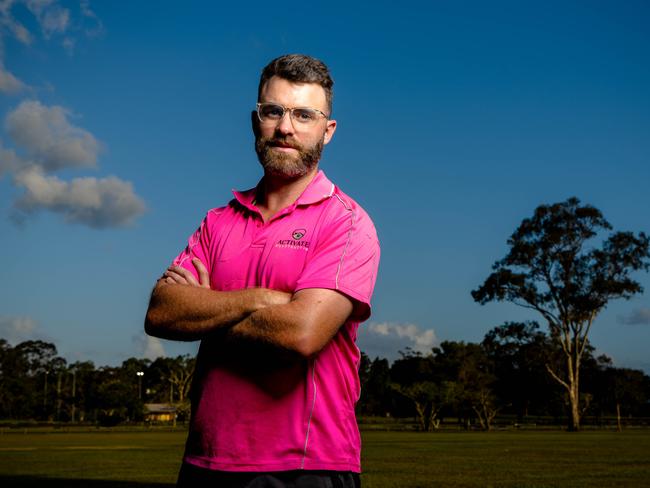
“I was getting headaches in the hospital, and kind of realised it probably wasn’t the dehydration that was giving me the headaches.”
Mr Williams said he went to the Optometrist to get his eyes checked and was given a referral to go to the ER and get a CT and MRI.
“And then after those I got a diagnosis with a brain tumour,” he said.
“I was probably just in a little bit of shock.”
Mr Williams said three weeks after being diagnosed they cut out about 80 per cent of the tumour.
“Where the tumour was sitting, it was on my optic nerve, which is what was causing issues, And then just above the pituitary gland, which controls all your hormones and everything,” he said.
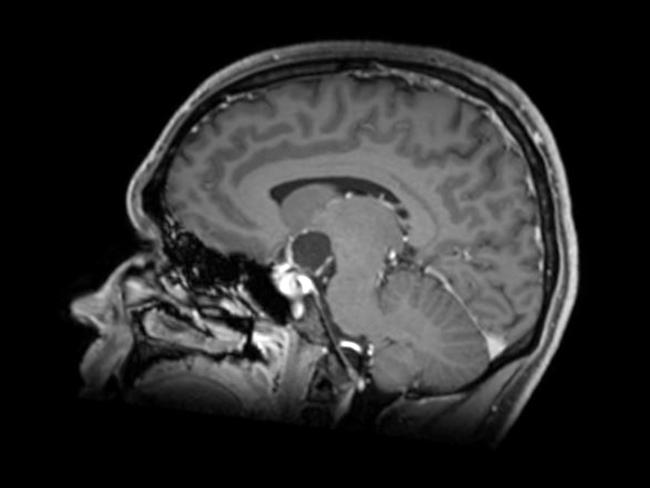
Radiation ended September last year. Since the incident he had constant check ups and is feeling better.
But he said he could never have done it with the support of his wife who was there through every step of the way.
Also having an impact on herself.
“My wife’s been really good through all that. She was a trooper, looked after our two kids and everything,” he said.
“She was really supportive with all the house of the things that we needed to do.
“Making sure I was cared for. I wasn’t allowed to drive for six months. She had to take on all those sort of those roles.”
Cancer is a constant reminder for Mr Williams, at his place of work Activates Construction, they wear pink after one of the owners had breast cancer.
“They donate $5,000 and stuff for every house that gets sold to Breast Cancer Foundation,” he said.
“And they are really supportive people as well, which is good.”
There’s no such thing as ‘good cancer’
A woman with breast cancer has slammed the phrasing the “good cancer”, saying the diagnosis turned her life “upside down”.
Renae Ellaway from the Sunshine Coast was told she had an early stage of breast cancer 12 months ago and has since struggled with the whole process.
“In relation to a lot of people thinking that early stage breast cancer is a good or a better cancer to have, I want to reiterate that that’s certainly not the case,” she said.
“And that’s certainly not the case for me, like I had been through an absolute ordeal, and I will continue to live with this for the rest of my life.
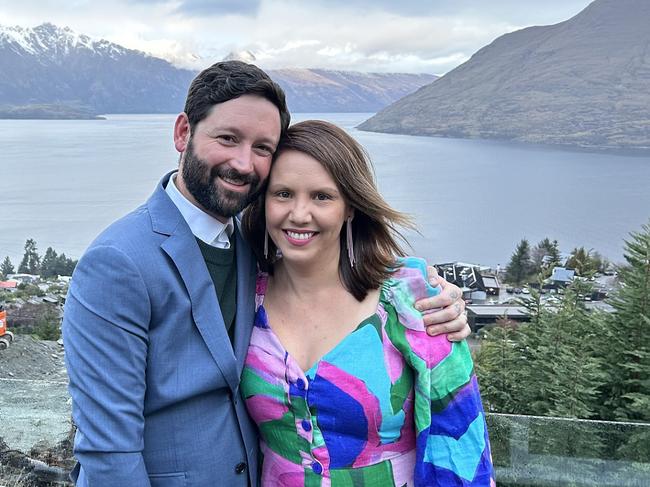
“And there will be lots of unknowns ahead of me.
“I was told I had early breast cancer 12 months ago. I’ve been through this up and down journey, and it’s literally changed my life.”
New research from Project Shirley, led by Inherited Cancers Australia alongside Novartis, shows using the phrase “good cancer” stops those diagnosed with eBC from sharing their concerns, challenges and fears.
“The early findings show fear of recurrence is one of the most pervasive concerns and unmet needs of cancer patients,” a spokesperson for Inherited Cancers Australia said.
“It is associated with decrements in mental, physical, and social aspects of quality of life and can persist long after treatment is finished – many wanting more information about the risk of recurrence, and support around managing their fear and mental health. “
Ms Ellaway said her diagnosis had an impact on her family, her finances, her mental health and her health confidence.
“My world has just been turned upside down for the last 12 months, I’ve gone from a 38-year-old with no health issues, no history of breast cancer, with a young, three year old son,” she said.
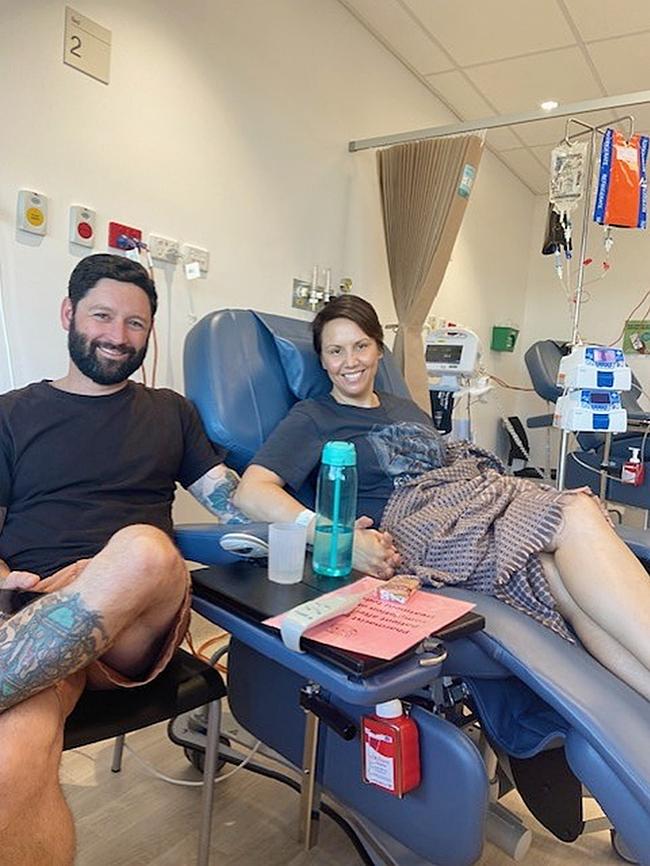
Ms Ellaway got checked after she found a lump on her breast. A lymph node was later found in her right arm.
She was put on a neoadjuvant treatment which was meant to blast the cancer with chemo and immunotherapy and then surgery.
Among all the angst she was told she would have to make a decision on whether she wanted more treatment as it wouldn’t be an option after all the treatment.
“We ended up going through one round of IVF, which was tough because not only was everything else going on, but they were injecting me with all sorts of hormones to try and produce as many eggs as possible,” she said.
“We finished the IVF cycle and two days later started chemotherapy.”
She finished chemo a few months ago. However as time went on her treatment got more complex.
“Nothing went to plan,” she said.
“It was just so many ups and downs of going in to have treatment, but I wasn’t allowed to have it because neutrophils were too low.
“Or my blood tests had spiked, so they didn’t want to give me treatment. So I found that incredibly challenging to work through.
In January she had changed chemotherapy drugs and had a bad reaction to it.
“I basically was unconscious, so had a really severe reaction to something and my husband had to call the ambulance and they had me in ICU for a number of days,” she said.
“I eventually woke up, which my family was incredibly relieved, because during that period of time, they were told they weren’t too sure what was going to happen and how I was going to wake up.”
Ms Ellaway finished her treatment in March and had surgery weeks later. Even though radiation had finished she says she still feels the ongoing effects.
“Even though my active treatment is over. This is all going for many, many years, and I guess the diagnosis of a breast cancer, of being told you have breast cancer,” she said.
“Yes, you can treat it, but then, you know, this is something forever in me, land the biggest thing at the moment, is the risk of recurrence.
SISTERS’ TWIN SHOCKS
Two sisters who were diagnosed with breast cancer just six weeks from each other have told of the psychological effects treatment had on them and their children.
Aisling Cunningham was diagnosed with breast cancer while her sister Margaret was already going through chemotherapy in 2020.
While the treatment had a physical toll on them, the sisters say it wasn’t until after they finished that they realised the mental toll they would face.
On Saturday, the sisters will hold a non-for-profit free community event which will give people tools to help them get through their treatment and after by a psychologist who will share mindful practices.
The event called A Mindful Moment – with Lula will be a morning retreat from those touched by cancer whether it be survivors, those currently in treatment or carers.
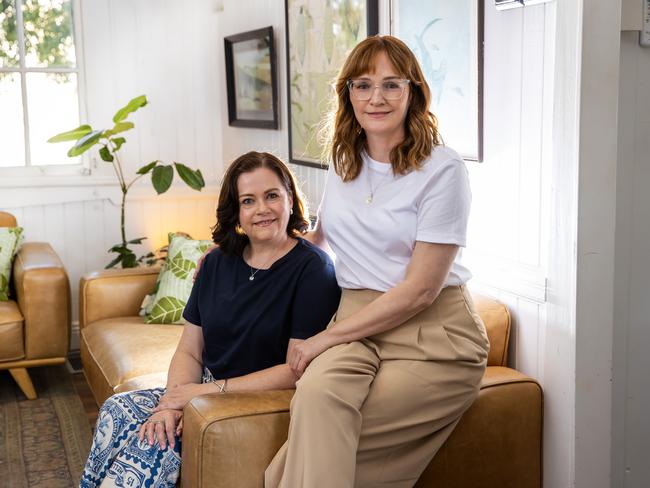
Free tickets are still available for the event, which will be held at Loyal Hope Brisbane – 50 Morgan Street, Fortitude Valley from 9.30am.
“As soon as you’re diagnosed, you’re immediately given an oncologist and a surgeon to see, and often maybe you have to go to radiation as well,” Aisling said.
“But you’re not necessarily sent to see a psychologist or a psychiatrist.
“I wish I had seen a psychologist early on. Right after cancer treatments, that’s when things really hit you in your mind, what you’ve just been through, and how you’re going to handle going forward as well.”
Margaret said it wasn’t until after the treatment that the mental toll hit.
“I think when you’re actually in the depths of it, you’re, you’re just really dealing with the treatment. It’s all about the day to day, the appointments,” she said.
“It’s not until you finish the treatments that you then you might you look back and you can’t believe what you actually just dealt with.
“So the mind part of it, it hits at the very start, when you diagnose, you’ve got so many emotions going on.
“But it’s not till you actually finish the treatment that the mental load of what you’ve been through actually occurs.
The sisters said they were so lucky to have each other and can have each other to fall on.
“If Mags has to go for a scan, I just get so worried, even the ones that she’s not worried about,” Aisling said.
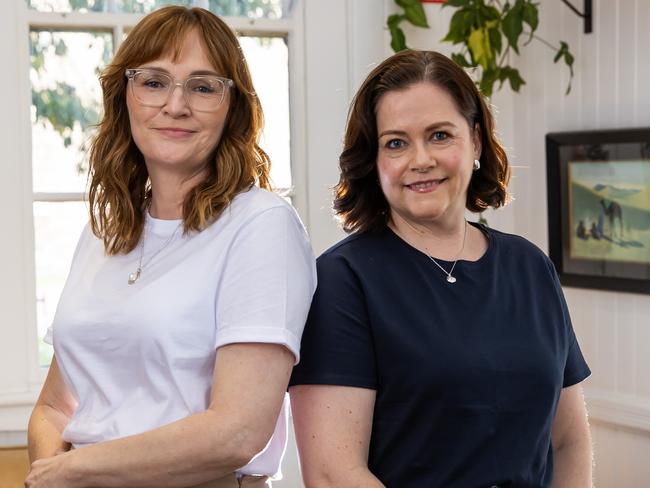
“I feel a bit sick in the stomach until I hear no all clear all good, because I know what that fear, that feeling is like, waiting for results.
“And we’re constantly waiting for results, because you do have to be scanned every year.
And if there is anything that you’re worried about.”
Since the treatment the sisters have realised the toll it has had on their children aged 13, 14 and 10.
“My children had a niggle the other couple of months and was worried that it would be cancer,” Margaret said.
“They knew I was having treatment, but they always seemed really happy. But now actually realise there was quite a an impact on them that they maybe didn’t show at the time that.”
Aisling said she went to doctors once to her daughter who had a sore stomach and her daughter turned to her and asked “does that mean I am dying”.
“But she’s got this fear, I guess because they saw what we were going through, that if you go to a doctor it means something bad,” she said.



